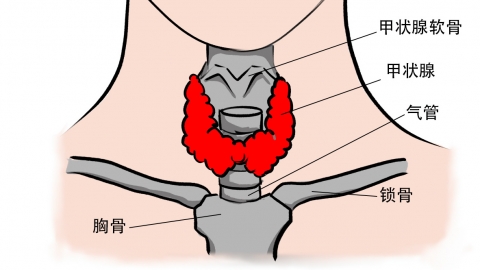Why do patients with hyperthyroidism experience foot swelling?
Hyperthyroidism usually refers to hyperthyroidism. Generally, patients with hyperthyroidism may develop foot swelling due to various reasons, such as metabolic acceleration causing fluid circulation disorders, sympathetic nerve excitation increasing vascular permeability, concurrent hyperthyroid heart disease, concurrent hypoproteinemia, or concurrent pretibial myxedema. If discomfort symptoms occur, timely consultation at a regular hospital is recommended. Detailed analysis is as follows:
1. Metabolic Acceleration Causing Fluid Circulation Disorders
Hyperthyroidism increases the body's metabolic rate and accelerates blood circulation, possibly leading to fluid leakage from peripheral blood vessels into tissue spaces, resulting in foot swelling. At this time, attention should be paid to rest, avoiding prolonged standing or walking. Elevating the feet appropriately during rest can promote blood return, while reducing intake of high-salt foods.

2. Sympathetic Nerve Excitation Increasing Vascular Permeability
Hyperthyroidism keeps the sympathetic nerves in an excited state, leading to enhanced peripheral vascular permeability and easier fluid leakage into subcutaneous tissues, causing foot swelling. Tension can be relieved by listening to calming music, meditation, etc., and if necessary, medications such as propranolol tablets, atenolol tablets, or metoprolol sustained-release tablets can be used under medical guidance to regulate nerve excitability.
3. Concurrent Hyperthyroid Heart Disease
Long-term hyperthyroidism may affect the heart, leading to heart dysfunction, reduced cardiac pumping capacity, impaired blood return, and resulting in lower limb edema, often accompanied by palpitations and shortness of breath. Medications such as methimazole tablets, propylthiouracil tablets, or metoprolol tartrate tablets should be used under medical guidance to control hyperthyroidism and improve heart function, while avoiding strenuous exercise.
4. Concurrent Hypoproteinemia
Patients with hyperthyroidism experience increased metabolic activity and higher protein consumption; insufficient intake can lead to decreased plasma albumin levels, reduced plasma colloid osmotic pressure, and fluid leakage into tissue spaces causing foot swelling. Intake of high-quality proteins such as eggs, lean meat, and milk should be increased, and if necessary, medications such as human albumin injection or compound amino acid injection (18AA) can be used under medical guidance for protein supplementation.
5. Concurrent Pretibial Myxedema
Some patients with hyperthyroidism may have abnormal immune function, leading to deposition of mucinous substances in the skin and subcutaneous tissues of the anterior tibia, manifesting as swelling from the ankle to the lower leg, with rough and thickened skin. Topical medications such as tacrolimus ointment, mometasone furoate cream, or compound flumetasone ointment should be applied to the affected area under medical guidance.
In daily life, attention should be paid to a balanced diet ensuring adequate nutrition, moderate exercise to enhance physical fitness without overexertion, and regular follow-up examinations of thyroid and heart function to allow timely adjustment of treatment plans.








